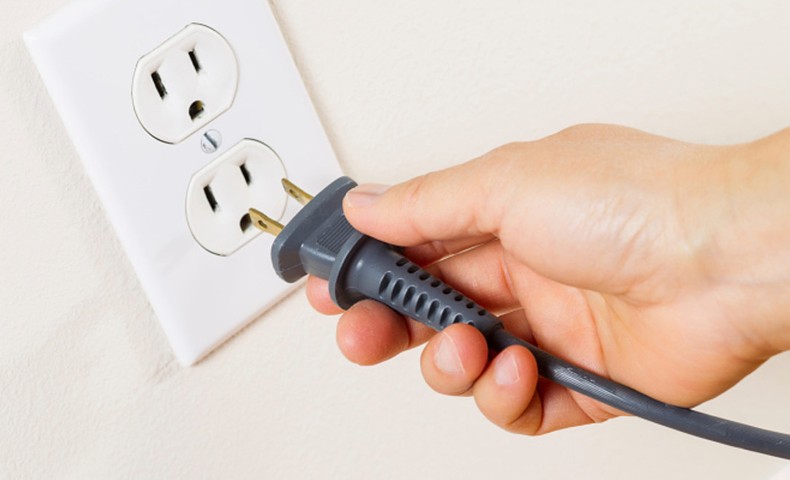With the cost and hassle of replacing central heat, many people are investing in space heaters. These portable heaters can lower energy bills by adding direct warmth to the most used rooms in a home or office.
But while portable heaters are both efficient and economical, there are several safety considerations that everyone should keep in mind.
- Space Heater Placement
- Safety Features to Look For
- Plug Directly into an Outlet
- Regular Inspection and Maintenance
- Shut Off and Unplug
- Keep Away from Water
- Safety Certifications to Consider
Space Heater Placement
Space heaters must remain at least three feet away from furniture, window treatments, bedding, clothing, rugs, and other combustibles.
These items can cause a fire risk if they come in contact with a unit's electric heating element or too-hot surface.
Look for Safety Features
Today's portable heater models include various safety features, like Overheat Protection, which detects when internal components become too hot and automatically shuts off, or Tip-Over Protection, which automatically shuts the unit off if tipped over. Many space heaters also include a Cool-Touch Housing, which prevents accidental burns from touching the heater’s exterior. These features should be included in any space heater you use.
Plug Directly into an Outlet
Portable electric heaters should be plugged directly into an outlet that isn’t shared by any other appliances. Even though you’ve probably been doing it forever, you shouldn’t ever plug a space heater into an extension cord because it increases the chance of overheating, fires, and electrical shock injuries.

Regular Inspection and Maintenance
You should inspect any space heater when you first purchase it. Then, you should frequently clean and maintain it to ensure it's working safely. After shutting down and unplugging the heater, wipe down the exterior with a cloth or vacuum to help reduce the buildup of dust and allergens.
Shut Off and Unplug if Not in Use
Space heaters should be turned off and unplugged whenever they are not used. Many models, like Vornado heaters, feature programmable timers that can be used to program automatically on and off times for when you sleep or head to work. However, unplugging any heater you aren’t using is always a good idea.
Keep Heaters Away From Water
Unless a space heater was explicitly designed for wet spaces, it should never be used in a bathroom, humid basement, or other space where moisture accumulates. You shouldn’t even pick up a space heater with wet hands, or you’ll increase your risk of being shocked.
However, some heaters feature special plugs (GFCI or ACLI) that make them safe for bathroom use. Check out our article How to Select a Bathroom Heater for more information, and see our selection of bathroom-friendly space heaters here.

Keep Safety Certifications in Mind
Portable space heaters listed by Nationally Recognized Testing Laboratories (NRTLs) have been tested, proven, and certified to meet specific safety standards. These heater manufacturers must provide important information about the safe usage and care of their products.
Some standard testing laboratory certifications to look for include ETL (Intertek Group), UL (Underwriters Laboratories), and CSA (Canadian Standards Association). If your product has one of these certifications, you can be confident it's safe to use at home.

In Summary
Portable space heater safety is simple: Look for certified heaters with safety features like overheat protection, tip-over protection, and cool-touch housing. Plug heaters directly into a dedicated outlet, shut them off when you leave, and check the clearance distances for your specific heater.
Still Have Questions?
Still not sure what's best for you? Contact one of our product experts toll-free at 1-800-934-9194. We want to help you make your indoor environment healthy and comfortable. You can also connect with us on the Sylvane Instagram, Facebook, and Twitter pages.


